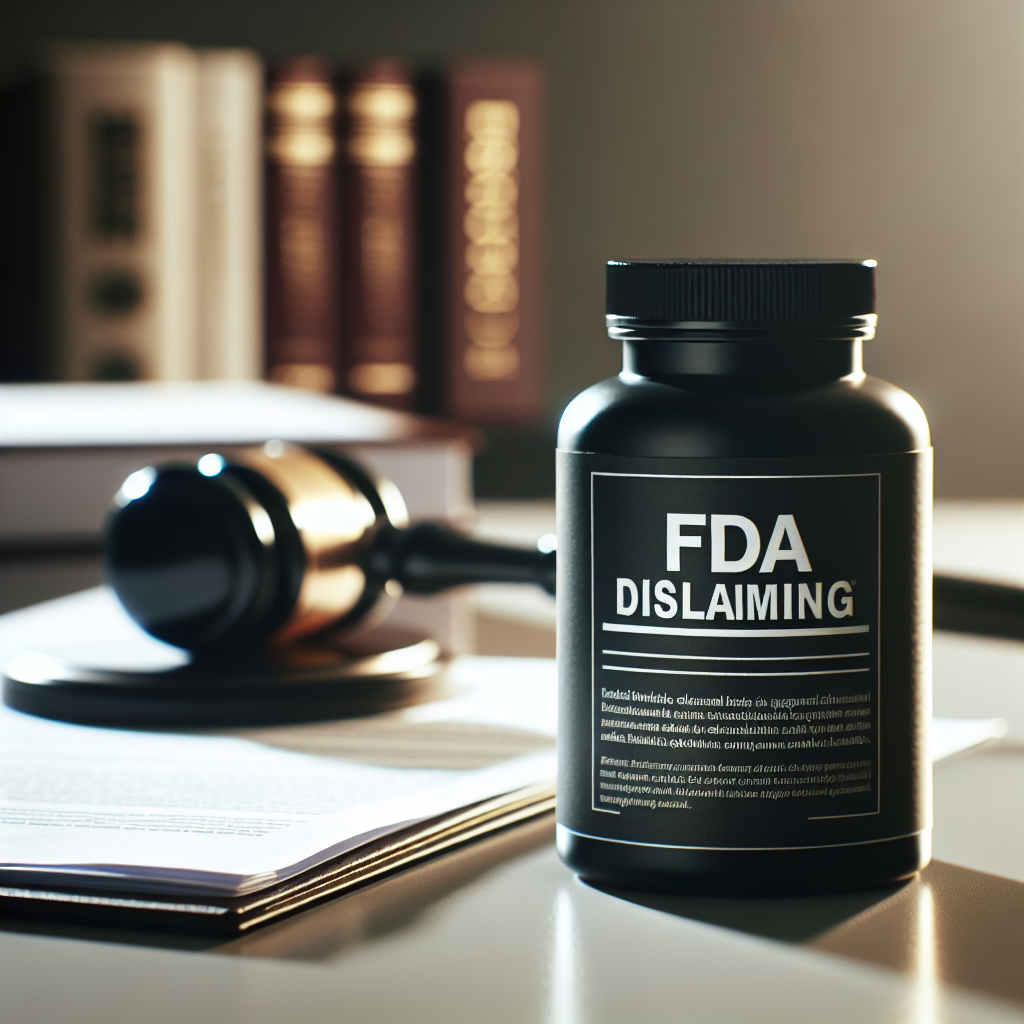In the ever-evolving world of dietary supplements, staying compliant with FDA regulations isn’t just good practice—it’s essential for your business’s survival. For supplement manufacturers, navigating the complex web of regulatory requirements can feel overwhelming. An alphabetical list of supplements with their respective regulatory considerations can serve as a lifeline, helping you avoid costly mistakes and potential legal troubles. This comprehensive approach to organizing compliance information could be the difference between thriving in the market and facing devastating regulatory actions.
Understanding the FDA’s Role in Dietary Supplement Regulation
The Food and Drug Administration’s authority over dietary supplements stems from the groundbreaking Dietary Supplement Health and Education Act (DSHEA) of 1994. This pivotal legislation created a distinct regulatory framework for supplements, separating them from both conventional foods and pharmaceutical drugs. Under DSHEA, supplements are defined as products intended to supplement the diet containing one or more dietary ingredients such as vitamins, minerals, herbs, botanicals, amino acids, or other substances.
Unlike drugs, dietary supplements don’t require pre-market approval from the FDA. However, this doesn’t mean they’re unregulated. The responsibility for ensuring safety and compliance falls squarely on the manufacturers’ shoulders. The FDA maintains oversight through post-market surveillance and enforcement actions against non-compliant products.
“The DSHEA framework was designed to strike a balance between consumer access to supplements and necessary safety protections,” explain industry experts. “While giving manufacturers freedom to innovate, it places significant responsibility on them to ensure product safety and accurate labeling.”
Critical Labeling Requirements: Your First Line of Compliance Defense
Labeling compliance represents one of the most visible and scrutinized aspects of dietary supplement regulation. The FDA has specific requirements for supplement labels that must be meticulously followed:
- Products must be clearly identified as “dietary supplements”
- An accurate statement of identity must appear
- Net quantity of contents must be disclosed
- A complete list of ingredients with amounts must be included
- The name and address of the manufacturer, packer, or distributor must appear
- All labeling must be truthful and not misleading
Perhaps the most critical component is the Supplement Facts panel, which must display serving size, servings per container, and nutritional information in a standardized format. For many manufacturers, organizing an alphabetical list of supplements with their specific labeling requirements provides an efficient reference tool to ensure compliance across their product portfolio.
Misleading claims on supplement labels can trigger swift regulatory action. In 2023 alone, the FDA issued numerous warning letters to companies making unsubstantiated disease claims. These enforcement actions highlight the importance of understanding what can and cannot be claimed about dietary supplements.
Navigating Supplement Categories and Their Specific Compliance Guidelines
Different categories of dietary supplements face unique regulatory challenges. Understanding these distinctions is essential for proper compliance.
Vitamins and Minerals: These must adhere to established Daily Value (DV) guidelines and may make certain nutrient content claims when meeting specific thresholds. For example, “high in vitamin C” requires at least 20% of the DV per serving.
Herbal and Botanical Supplements: These products face additional scrutiny regarding identity, purity, and safety. New Dietary Ingredient (NDI) notifications may be required for ingredients not marketed in the US before October 15, 1994.
Amino Acids: These must be properly identified and labeled, with careful attention to avoid making muscle-building or performance claims that might categorize them as drugs.
Enzymes and Probiotics: These present unique challenges for stability claims and potency measurements, requiring specific testing protocols to substantiate label claims.
Organizing these varied requirements into an alphabetical list of supplements allows manufacturers to quickly reference the specific compliance needs for each product in their lineup. This systematic approach helps ensure nothing falls through the compliance cracks.
How the FDA Evaluates Compliance Claims
Despite not requiring pre-market approval, the FDA has established criteria for evaluating supplement safety and claim compliance. The agency primarily looks at:
- Whether the supplement contains a dietary ingredient as defined by DSHEA
- If all ingredients are safe under normal use conditions
- Whether any claims made are substantiated by scientific evidence
- If manufacturing follows current Good Manufacturing Practices (cGMPs)
- Whether the product label contains all required information
The burden of proof lies with manufacturers to demonstrate compliance with these standards. An alphabetical list of supplements with documented evidence of compliance for each product can prove invaluable during FDA inspections or when responding to FDA inquiries.
“Being prepared with organized compliance documentation is critical,” note regulatory experts. “Companies that maintain comprehensive records organized by product can respond much more effectively to FDA scrutiny.”
FDA Monitoring and Enforcement: What’s at Stake
The FDA’s post-market surveillance activities include facility inspections, product sampling, adverse event monitoring, and consumer complaint investigation. Violations can trigger escalating responses:
- Warning letters requiring prompt corrective action
- Product seizures or mandatory recalls
- Injunctions against continued manufacturing
- In severe cases, criminal prosecution of company officials
Recent years have seen increased enforcement activity, with the FDA conducting over 10,000 domestic food safety inspections annually between 2021 and 2023. This uptick highlights the agency’s commitment to ensuring supplement safety and compliance.
For businesses, the stakes couldn’t be higher. Regulatory violations can result in product recalls, substantial financial losses, permanent reputational damage, and even business closure. Maintaining an alphabetical list of supplements with up-to-date compliance documentation for each product provides a systematic approach to mitigate these risks.
The Evolution of Regulatory Status: From Prescription to OTC
Some ingredients have transitioned from prescription-only status to being available in dietary supplements. These transitions often create complex regulatory situations that manufacturers must navigate carefully.
For example, certain forms of omega-3 fatty acids were once available only by prescription but are now common in dietary supplements. However, specific concentration levels and manufacturing processes determine whether a product is regulated as a drug or supplement.
An alphabetical list of supplements should note these distinctions, particularly for ingredients with this complex regulatory history. This awareness prevents inadvertently crossing the line between supplement and drug categories—a mistake that could trigger severe FDA enforcement action.
Leveraging FDA Resources for Compliance Success
The FDA provides numerous public resources to help manufacturers maintain compliance. These include:
- Guidance documents outlining current regulatory thinking
- Technical assistance programs for small businesses
- Public workshops and webinars on compliance topics
- Industry letters addressing emerging regulatory concerns
These resources should be regularly consulted and incorporated into your compliance strategies. Maintaining an alphabetical list of supplements with links to relevant FDA guidance for each product creates an efficient system for staying current with regulatory expectations.
The FDA’s website serves as a valuable repository of information, offering detailed guidance on everything from labeling requirements to manufacturing practices. Manufacturers who proactively utilize these resources demonstrate their commitment to compliance and consumer safety.
Manufacturer Responsibilities: Quality as the Foundation of Compliance
At the heart of FDA compliance lies the manufacturer’s responsibility to ensure product safety and quality. This commitment aligns perfectly with NutraAeon’s philosophy of quality, transparency, and empowerment.
Good Manufacturing Practices (GMPs) form the cornerstone of quality assurance in supplement production. These practices include:
- Establishing quality control procedures
- Ensuring proper facility design and maintenance
- Maintaining equipment calibration
- Implementing testing protocols for ingredients and finished products
- Training personnel in proper handling procedures
- Creating thorough documentation systems
“Quality isn’t just about regulatory compliance—it’s about earning consumer trust,” emphasize industry leaders. This perspective echoes NutraAeon’s commitment to exceeding industry standards through rigorous quality control measures.
By organizing an alphabetical list of supplements with specific quality parameters for each product, manufacturers can ensure consistent adherence to both regulatory requirements and internal quality standards. This systematic approach transforms compliance from a burden into a competitive advantage.
The Business Benefits of FDA Compliance
Adhering to FDA regulations delivers significant business advantages beyond merely avoiding penalties:
- Enhanced consumer trust: Compliance signals commitment to product safety
- Reduced legal liability: Properly documented compliance efforts mitigate risk
- Competitive differentiation: Quality compliance can distinguish your brand
- Business sustainability: Avoiding regulatory actions ensures continued operations
- Expanded market opportunities: Some retail channels require documented compliance
NutraAeon understands these benefits intimately. As a global nutritional ingredients partner, NutraAeon provides not just premium raw materials but also the technical expertise and regulatory guidance necessary to navigate compliance challenges successfully.
Conclusion: Your Alphabetical Supplement List as a Strategic Asset
An alphabetical list of supplements with comprehensive compliance information represents more than just a reference tool—it’s a strategic business asset. By systematically organizing regulatory requirements, quality parameters, and documentation for each product, manufacturers can transform compliance from a daunting challenge into a manageable process.
This approach aligns perfectly with NutraAeon’s commitment to empowering forward-thinking manufacturers through quality, transparency, and expertise. As your trusted partner in nutritional ingredient sourcing, NutraAeon provides not just exceptional raw materials but also the knowledge and support needed to navigate the complex world of FDA compliance.
In today’s regulatory environment, compliance isn’t optional—it’s essential for business survival. By creating and maintaining your alphabetical list of supplements with detailed compliance information, you’re not just checking a regulatory box; you’re building a foundation for sustainable business growth and consumer trust. This systematic approach to compliance could indeed be the tool that saves your business from costly regulatory mistakes while positioning you for long-term success in the competitive supplement marketplace.


